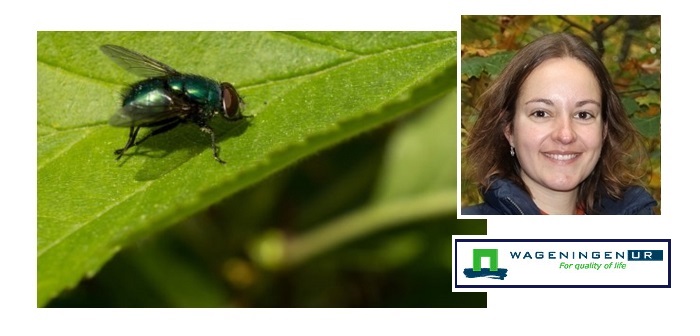The direct environmental benefits of using housefly larvae in animal feed rations could be offset by the indirect negatives caused by using waste to produce insect protein instead of applying the same waste to generate bio-energy.
This is the key conclusion of studies carried out in the Netherlands by Wageningen University scientist, Hannah van Zanten.
“Looking to insects as a protein-rich source of animal feed is logical,” said Ms van Zanten (pictured above), noting that alternatives, such as soya cultivation have had “major negative effects” such as deforestation, loss of biodiversity and high CO2 emissions, especially in Brazil and Argentina.
After studying the environmental effects of using housefly larvae for animal feed production in the Netherlands, using data from an insect farm, two waste processing companies and an animal feed company that processes the larvae, she said that the housefly larvae appeared to be more eco-friendly per kilo than either soya or fishmeal. That conclusion, however, only applied in terms of the direct effects of switching from soya and fishmeal to housefly larvae.
When Ms van Zanten also analysed the indirect effects of the switch, the story became much more “nuanced”.
“In this part of the study we fed the larvae partly with chicken manure and partly with waste,” she said. “The waste was the problem as 98% is currently being fermented for generating bio-energy, which replaces fossil fuels and so benefits the environment. Feeding all this waste to insects would increase the need for fossil fuels, resulting in a negative environmental balance overall.”
Her final conclusion, therefore, is that it’s currently “unwise” to aim at insect production for animal feed, a result which she agreed would be different if the Netherlands was to become less reliant on fossil fuels in favour of wind and solar power, so reducing its use of waste for bio-energy.


